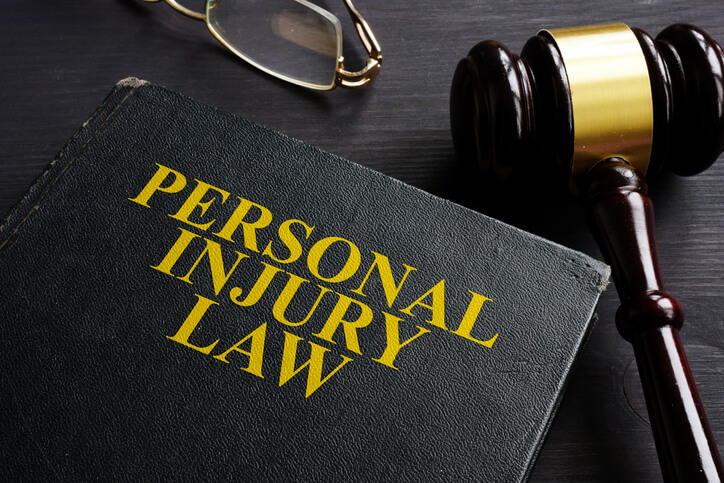Now Reading: Comparative Negligence: Understanding Its Impact on Personal Injury Cases
-
01
Comparative Negligence: Understanding Its Impact on Personal Injury Cases

Comparative Negligence: Understanding Its Impact on Personal Injury Cases
You may have heard the term “comparative negligence” tossed around, especially now that you’re navigating the complexities of a personal injury case. But what exactly does it mean for you? How does it impact your claim, your compensation, and, ultimately, your path to justice?
What is Comparative Negligence?
Comparative negligence is a legal concept that comes into play when determining fault and assigning responsibility in personal injury cases. It recognizes that accidents are rarely black and white; often, multiple factors contribute to an incident, and both parties may share some degree of fault.
Comparative negligence allows for a more nuanced approach to assigning liability. Instead of a simple “all or nothing” scenario, it acknowledges that each party may bear a certain percentage of responsibility for the accident. In other words, even if you were partially at fault for the incident that caused your injuries, you may still be entitled to compensation.
Now, you might be wondering: How does this impact my case? Well, let’s say you were involved in a car accident where the other driver ran a red light and collided with your vehicle. However, you were found to have been exceeding the speed limit at the time of the accident. In this scenario, both you and the other driver may be deemed partially at fault.
Calculating Compensation
Here’s where the concept of comparative negligence comes into play. Your compensation may be reduced proportionally to your degree of fault. For example, if the court determines that you were 20% at fault for the accident, your total compensation award may be reduced by 20%. So, if your total damages amounted to $100,000, you would ultimately receive $80,000.
But this is where you need the expertise and negotiation skills of a personal injury. Comparative negligence is largely subjective. It is usually subject to the ability to prove your fault and the extent of it. Without strong legal backing, all blame may be imposed on you and you may lose any rights to compensation. So, it’s best to have a top personal injury lawyer who can advocate tirelessly to protect your rights and secure the maximum compensation you deserve.
Your attorney will conduct a thorough investigation into the circumstances surrounding your accident, gathering evidence such as witness statements, police reports, medical records, and expert testimony to support your claim.
Understanding State Laws
It’s essential to understand that comparative negligence laws vary from state to state, so the specifics of how your compensation is calculated will depend on where your case is being heard. Some states follow a pure comparative negligence system, where you can still recover damages even if you were 99% at fault for the accident. Others adhere to a modified comparative negligence system, which may impose restrictions on your ability to recover compensation if you were found to be equally or more at fault than the other party. Your personal injury lawyer will break it all down for you according to the laws of the jurisdiction where your accident happened.
To build a strong case, be honest and transparent with your attorney. Provide them with all the details of the accident, including any factors that may have contributed to the incident. Your attorney will use this information to build a comprehensive defense strategy tailored to your specific circumstances.
Mistakes to Avoid When Handling a Personal Injury Case
While having a personal injury attorney by your side can significantly improve your chances of success, there are also several common mistakes to avoid when handling a personal injury case, especially if you believe you’re partly at fault:
- Admitting Fault: Avoid making statements or admissions of fault at the scene of the accident or in conversations with insurance adjusters. It will be used against you. Even if you believe you may have contributed to the accident, liability is a complex legal issue that is best left to professionals to determine.
- Delaying Medical Treatment: Prompt medical attention is crucial following a personal injury accident, both for your health and for the strength of your case. Delaying or avoiding medical treatment can not only worsen your injuries but also undermine your claim for compensation.
- Settling Too Quickly: Insurance companies may pressure you to accept a quick settlement offer, especially if they believe you may be partially at fault for the accident. However, these initial offers are often far below the true value of your claim. It’s essential to consult with an attorney before accepting any settlement to ensure you’re not shortchanged.
- Failing to Document Evidence: Be proactive in documenting evidence related to your accident, including photos, videos, witness statements, and medical records. This evidence can be invaluable in supporting your claim and countering any allegations of comparative negligence.
Wrapping It All Up
In conclusion, comparative negligence is a crucial factor in personal injury cases that can have a significant impact on your ability to recover compensation for your injuries. By understanding how it works and working closely with your attorney to build a robust defense strategy, you can navigate this aspect of your case with confidence and pursue the justice and compensation you rightfully deserve.










